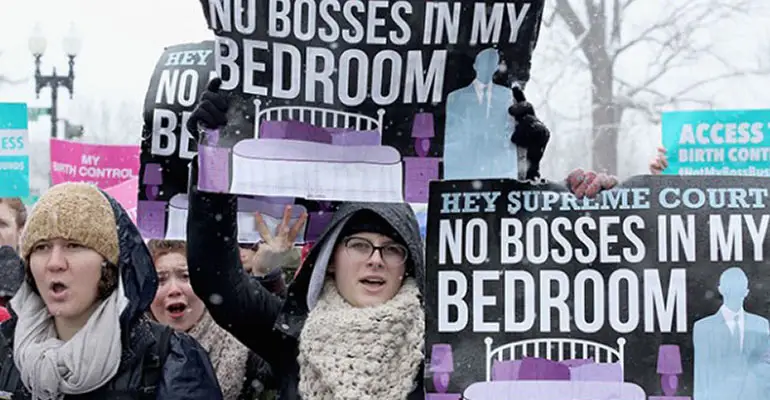Religious Freedom or Discrimination: Can My Employer Decide What Benefits I Can Get?

Some critics argue that the ruling, which favored the corporation’s right to deny female contraceptives through its insurance policy based on religious freedom, actually discriminates against the values of its opposing employees. Furthermore, the case brings up important questions of gender discrimination, since the company’s insurance did provide vasectomies to its male employees.
Supporters of Hobby Lobby, a for-profit corporation, might explain that dissatisfied workers could simply seek employment elsewhere. However, with an economy on the mend and the potential for similar action by other companies, worker freedoms are further complicated. Many worry that workers’ rights are now more complex than ever before.
What Must Employers Cover Under the Affordable Care Act (ACA)?
The ACA requires that businesses employing 50 or more workers must subsidize “minimal essential health coverage” insurance plans or pay a fine. Under the ACA, employee insurance plans should include contraception coverage for women.
However, that ACA mandate became complicated in early 2014 when the Supreme Court temporarily ruled that non-secular organizations were exempt from providing contraception coverage based on their right to religious freedom.
The recent Hobby Lobby decision further clouds the ACA’s ability to enforce the contraception coverage since the Supreme Court ruled that “closely held” companies, like Hobby Lobby, can deny birth control coverage on religious grounds, as well.
Can My Employer Decide What Benefits I Can Get?
The short answer: yes, your employer can decide what benefits you receive if you work for a closely held company with discriminating religious values. Regardless, the 50-plus-employee companies must still subsidize “minimal essential health coverage” or pay a fine; however, the religious platform of the closely held organization allows the corporation to dictate what types of birth control coverage the company provides.
What is a “Closely Held” Corporation, Anyway?
If your company has a limited number of shareholders, then it is likely considered “closely held.” Family-owned businesses, such as Hobby Lobby, are largely representative of these types of corporations.
Where’s the Line When it Comes to Workplace Discrimination and Benefits?
One thing’s for certain: there are still strict laws against workplace discrimination. While the lines regarding birth control benefits are blurry, an employer’s right to deny contraceptives based on religious freedom doesn’t excuse outright workplace discrimination – even when it comes to employee benefit plans such as health insurance.
If you believe your employer withheld certain benefits based on your race, color, religion, sex, national origin, age, handicap, or marital status, you may have a case for workplace discrimination under federal and state law.
The attorneys at Wenzel Fenton Cabassa, P.A. have extensive employment law experience.
Resources:
*photo courtesy of freethink.uk.com
Please Note: At the time this article was written, the information contained within it was current based on the prevailing law at the time. Laws and precedents are subject to change, so this information may not be up to date. Always speak with a law firm regarding any legal situation to get the most current information available.
Related Posts
Recent Posts
- False Claims Act Retaliation & Your Rights
- Fired for Being Pregnant? 5 Situations When You Should Call an Employment Lawyer
- Can My Boss Take My Tips? The Laws of Tip Ownership
- What Does “Meets FCRA Requirements” Mean?
- Can Your Employer Contact You While on Medical Leave? Know Your FMLA Rights in Florida
Contact Us

FREE HELP GUIDES
Dealing with unpaid wages, discrimination or wrongful termination? Get the information you need to protect your workplace rights. We offer employment law resources to help you fight for workplace justice.



